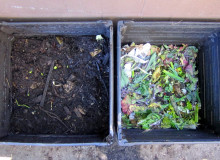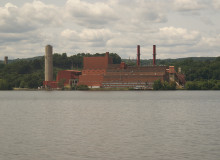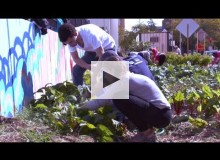Search
The George Washington University
Tuesday, December 04, 2012
Cities aren't seen as breadbaskets, and GW students aren't often pegged for farmers, but GW student Jesse Schaffer and the Food Justice Alliance buck the trends.
Tags: urban farming, food justice, farming in dc, food justice alliance, poop farm, soggy bottom poop farm

The Everglades play an important part in the water cycle of South Florida. (U.S. National Park Service)
Planet Forward Reporter | SUNY Purchase
Friday, June 21, 2019
Florida's population is growing — and so is its demand for water. What can the Sunshine State do to bolster its freshwater reserves and restore balance to its ecosystem?
Tags: aquifer, florida, fresh water, Drinking Water, Desalination, Everglades, wetlands, springs, storyfest2020

Two compost bins side-by-side. The bin on the left contains broken down organic material, while the one on the right contains fresh food scraps that have yet to break down. (David Silver/Flickr)
George Washington University
Saturday, February 23, 2019
Urban composting programs have been popping up nationwide, and Common Good City Farm offers the DC area to have one of its own.
Tags: Food Waste, compost, urban farming, greenhouse gases, waste management, storyfest2019
Planet Forward, George Washington University School of Media and Public Affairs
Monday, September 29, 2014
Bill Hohenstein

A view of the Danskammer Generating Station in Newburgh, N.Y., as seen from a train traveling on the other side of the Hudson River. (TomKonrad/Creative Commons)
The George Washington University
Tuesday, November 24, 2020
Before COVID-19 hit, there was another global crisis impacting people’s health and economic security: climate change. Here's how three environmental organizations are fighting for their communities during a pandemic.
Tags: Carbon emissions, clean water, local activism, new york, COVID-19 impact

A historical photograph of the West Calumet Housing Complex provided by the East Chicago Public Library for the Northwest Indiana Times.
Northwestern University
Monday, January 08, 2018
High lead and arsenic contamination has been plaguing East Chicago, Indiana, residential areas since at least the 1980s. Read about residents who have been affected by this crisis and their fight for recovery.

